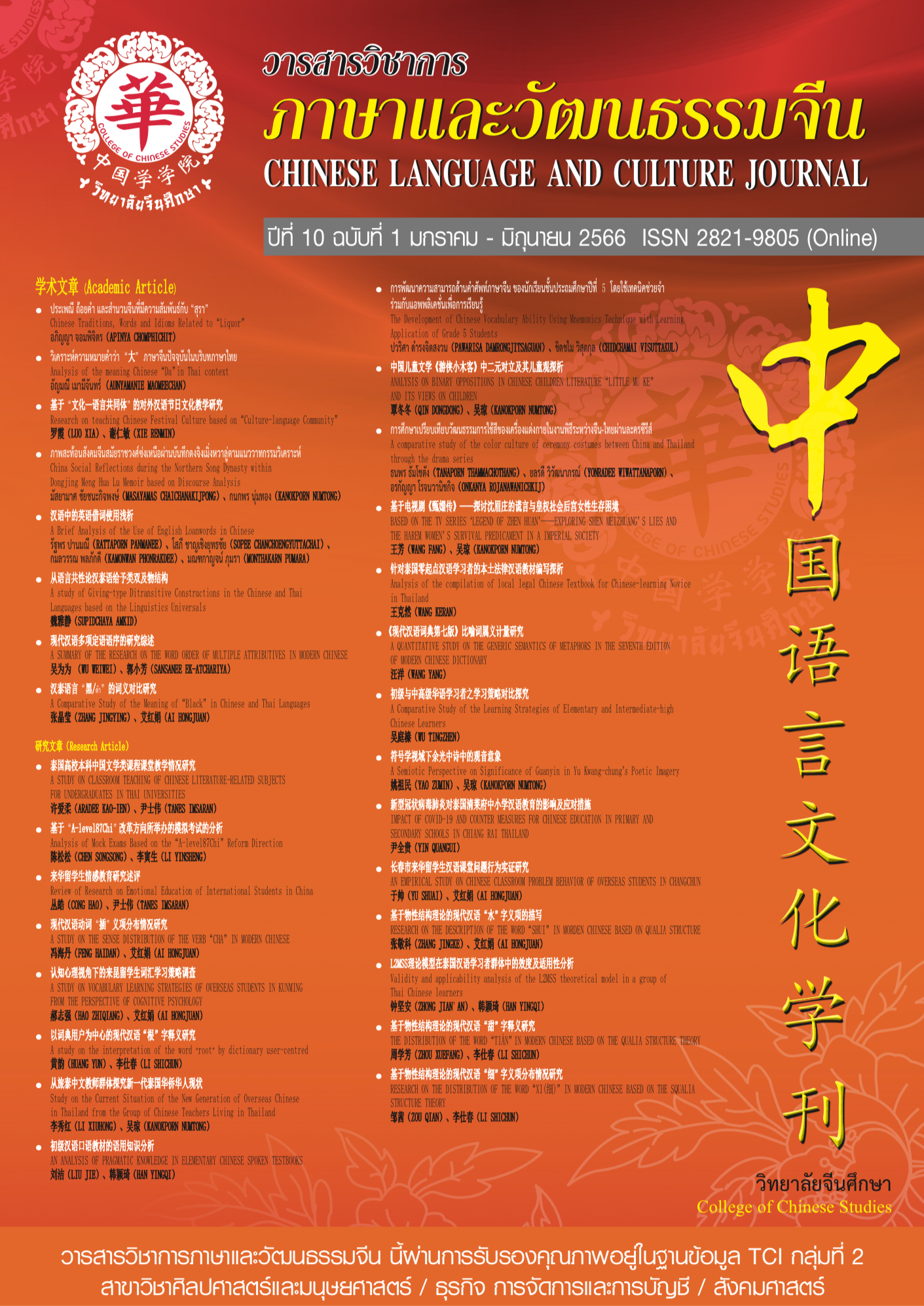China Social Reflections during the Northern Song Dynasty within Dongjing Meng Hua Lu Memoir based on Discourse Analysis
Keywords:
Social Reflection, Northern Song Dynasty, Analytical Discourse, Dongjing Meng Hua Lu MemoirAbstract
The objective of this research is to analyze Chinese social reflection during the Northern Song Dynasty within Dong Jing Meng Hua Lu memoir by Meng Yuan Lao in 1127 AD. This research uses analytical discourse by focusing on 5 aspects of society. The results of the research show: 1) The economic is very prosperous. There is flexibility to when and where to trade; 2) The education system is very progressive. Civil entrance examination emphasis on knowledge and competency more than family lineage which open for anyone to take the exam regardless of social class. There is also an education promotion by setting up schools to provide education for all citizens; 3) The livelihood aspect was found to be a golden age for urban society. The occupation is organized in a structured manner. The family values of having many wives and children to maintain the family lineage. Women hold an inferior status in society. Food and art culture has evolved greatly in this period. It was considered the golden age of Chu poetry; 4) In terms of traditions, rituals, and festivals, it was found that religion was involved in citizen's daily lives. Various ceremonies were held by the organized businesses. Marriage is mainly a parent's decision. Various important Festival Day frequently held; 5) The social issue, it was found that the religion is deteriorating, there are problems with prostitution and gambling which resulted in poverty. This research also found that social reflection is mainly written in positive aspect, emphasizing celebrations in various festivals to convey the reader's feelings of happiness in the past society.
References
ไชยรัตน์ เจริญสินโอฬาร. (2549) วาทกรรมการพัฒนา: อำนาจ ความรู้ ความจริง และความเป็นอื่น. กรุงเทพฯ : สำนักพิมพ์วิทยา.
ตรีศิลป์ บุญขจร. (2542). นวนิยายกับสังคมไทย 2475-2500. กรุงเทพฯ : โครงการตำราคณะอักษรศาสตร์, จุฬาลงกรณ์มหาวิทยาลัย.
ธัญญา สังขพันธานนท์. (2539) วรรณกรรมวิจารณ์. กรุงเทพฯ : นาคร.
ภูริวรรณ วรานุสาสน์. (2555) วาทกรรมการเดินทางในกวีนิพนธ์ฉือราชวงศ์ซ่ง. วิทยานิพนธ์ปริญญาอักษรศาสตรดุษฎีบัณฑิต, กรุงเทพฯ : บัณฑิตวิทยาลัย จุฬาลงกรณ์มหาวิทยาลัย.
สิทธิพล เครือรัฐติกาล. (ม.ค.- เม.ย. 2556) ความสัมพันธ์ระหว่างจีนกับอาณาจักรเหลียว ซีเซี่ย และจิน : ภาพสะท้อนความยืดหยุ่นทางการทูต สมัยราชวงศ์ซ่งเหนือ (ค.ศ. 960-1279). วารสารสังคมลุ่มนํ้าโขง. 9 หน้า 3-12.
อิงอร สุพันธุ์วณิช. (2551) รัก ทุกข์ สุข โศก ในงานวรรณกรรมไทย : ภาพสะท้อนสังคม จากอดีตสู่ปัจจุบัน. กรุงเทพฯ : บริษัท สร้างสรรค์บุ๊คส์ จํากัด.
Gao Yanjie (郜彦杰). (2006) 《东京梦华录》 词汇研究. 博士学论文. 南京师范大学.
Li Xuehan (李雪菡). (2021) 《东京梦华录》与《梦粱录》词汇比较专题研究. 硕士学位论文. 四川外国语大学.
Meng Yuanlao (孟元老). (1982) 《东京梦华录》,邓之诚 注.北京: 中华书局.
Wei Bangming (魏邦明). (2013) 《清明上河图》和《东京梦华录》中的北宋汴梁城市体育. 硕士学位论文. 西北师范大学.
Downloads
Published
How to Cite
Issue
Section
License
Copyright (c) 2023 Chinese Language and Culture Journal

This work is licensed under a Creative Commons Attribution-NonCommercial-NoDerivatives 4.0 International License.
บทความที่ได้รับการตีพิมพ์เป็นลิขสิทธิ์ของวารสารภาษาและวัฒนธรรมจีน มหาวิทยาลัยหัวเฉียวเฉลิมพระเกียรติ
บทความใน “วารสารวิชาการภาษาและวัฒนธรรมจีน” เป็นทรรศนะของผู้เขียนโดยเฉพาะ กองบรรณาธิการไม่มีส่วนในความคิดเห็นในข้อเขียนเหล่านั้น




